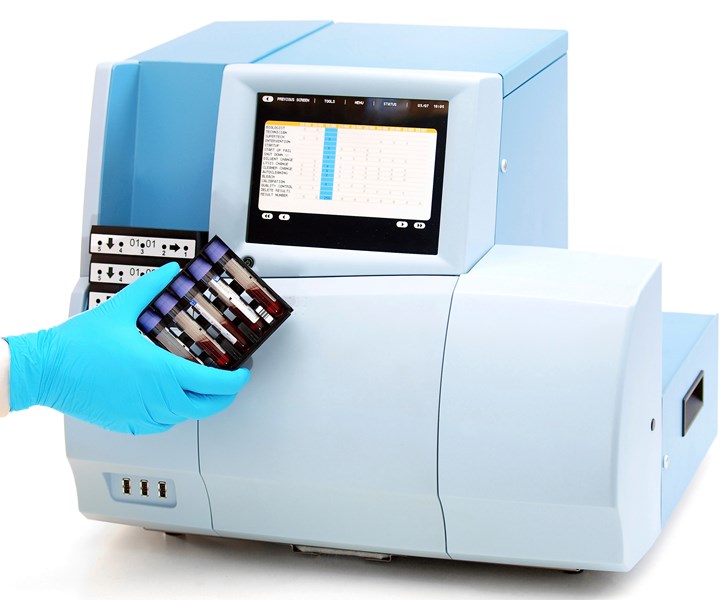Materials: Innovative PC Copolymers for Medical Equipment Housings and More
SABIC’s LNP Elcres CRX PC copolymers resist stress cracking in devices exposed to aggressive healthcare disinfectants and look promising for consumer electronics, mass transportation and industrial applications.
An innovative new family of PC copolymers touted for their excellent chemical resistance to highly aggressive chemical disinfectants used to prevent hospital-acquired infections (HAIs) in hospital and clinics are newly available from SABIC (U.S. office in Houston, Texas). The new LNP Elcres CRX copolymers are said to be an easier drop-in alternative to incumbent resins used in healthcare equipment housings ranging from portable ultrasound and X-Ray machines to hand-held diagnostics and infusion pumps.
Repeated cleanings with highly aggressive chemical disinfectants have been shown to lead to environmental stress cracking (ESC) that can lead to part failure. Compared to conventionally used materials such as PC/ABS PC/PBT blends—which are potentially incompatible with highly aggressive disinfectants such as quaternary ammonium compounds—the LNP Elcres CRX copolymers can help prevent stress cracking and mitigate crack propagation.

In addition to their compatibility with the most aggressive disinfectants on the market—alcohols, peroxides and quaternary ammonium compounds—these copolymers also deliver good mechanical performance (impact and flow). Specifically, LNP Elcres CRX copolymers, launched at MD&M West 2020, have been shown to have excellent property retention after exposure to PDI Healthcare’s Sani-Cloth AF3 wipes and other aggressive healthcare cleaners, combined with excellent impact performance (ductile notched Izod at 23°C) and mitigation of crack propagation.
To measure a polymer’s potential compatibility with chemical disinfectants, SABIC devised a quantitative ESC test that evaluates retention of both tensile stress at yield and tensile elongation at break. In addition to their chemical resistance and impact strength, the LNP Elcres CRX PC copolymers offer specialized properties. The three initial grades are: an amorphous blend of PC copolymer and PC resin for non-powered equipment and devices, a flame-retardant amorphous blend version for powered devices, and a flame-retardant amorphous/semi-crystalline PC/PBT blend for powered devices.
The material building blocks of these grades have been pre-screened for limited biocompatibility (e.g., cytotoxicity). The flame-retardant versions boast UL-V0 performance up to 1.5 mm. All grades are opaque and can be custom colored. Lastly, the portfolio can be tailored further to deliver additional features, such as inclusion under SABIC’s Healthcare Product Policy in which the material is subject to formulation lock and management of change process.
Said Darpan Parikh, global product management leader, at SABIC’s LNP Specialty Compounds, “Our new LNP Elcres CRX copolymers offer device manufacturers an easier, drop-in alternative to conventional resins that experience challenges in withstanding repeated cleanings with extremely harsh disinfectants. By adopting our new copolymers, which offer robust resistance to crazing, cracking and discoloration, customers can help enable longer device life and avoid premature replacement. Based on the exceptional performance of these new materials in healthcare applications, SABIC is actively exploring additional grades for other industry sectors where chemical exposure is a challenge.” Parikh confirms that the company is actively pursing this chemistry for multiple markets including consumer electronics, mass transportation and industrial,
Related Content
-
Baxter to Scale Up PVC Intravenous Bag Recycling Program
Successful pilot program with Northwestern Medicine will expand to additional units and health systems.
-
Medical Molder, Moldmaker Embraces Continuous Improvement
True to the adjective in its name, Dynamic Group has been characterized by constant change, activity and progress over its nearly five decades as a medical molder and moldmaker.
-
DuPont Buys Medical Product Manufacturer Spectrum Plastics
Purchase price of $1.75 billion for leading supplier of extruded, molded, and 3D printed medical components.









